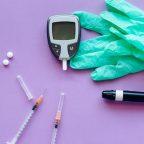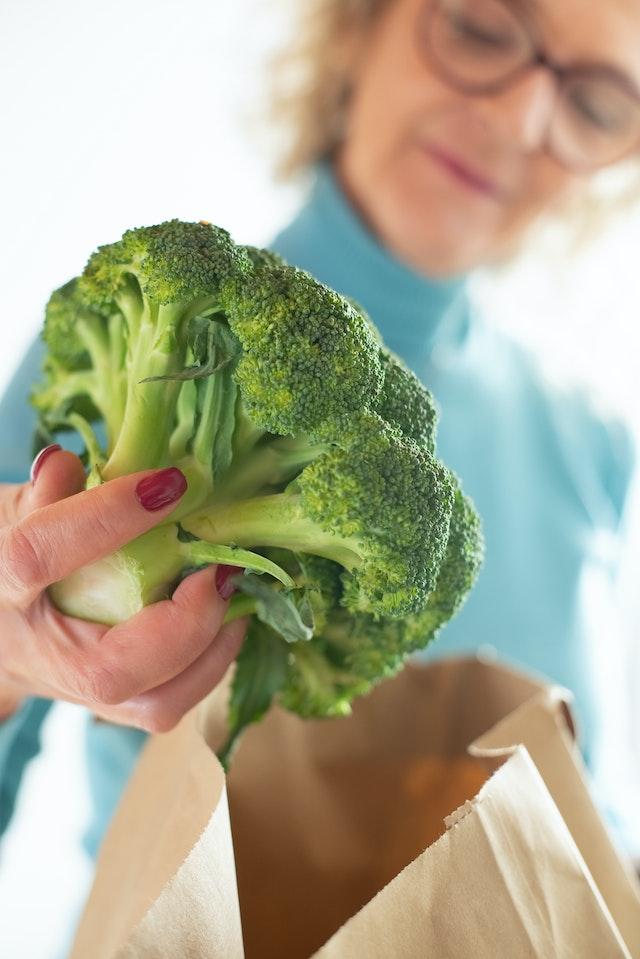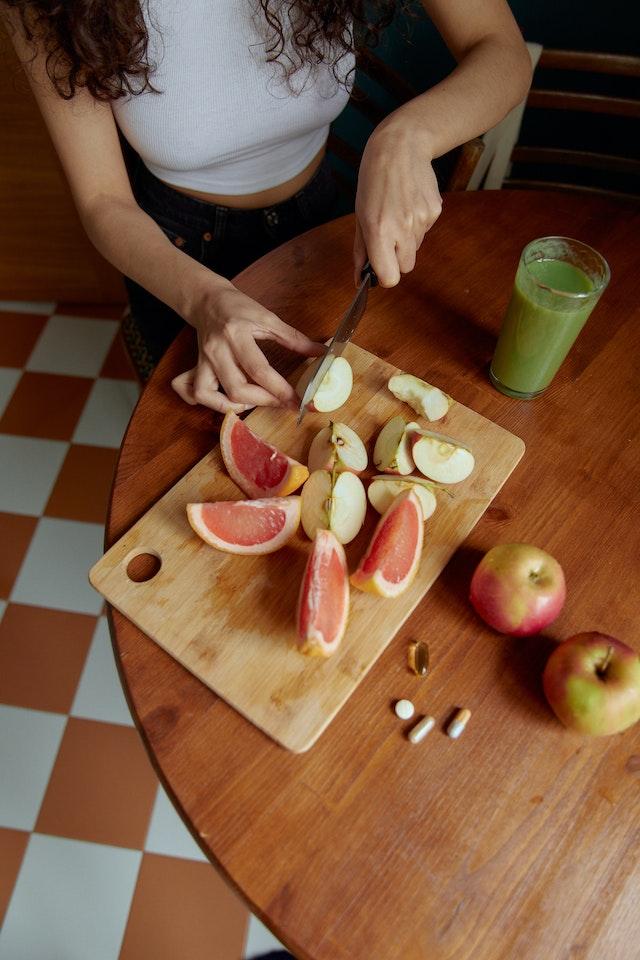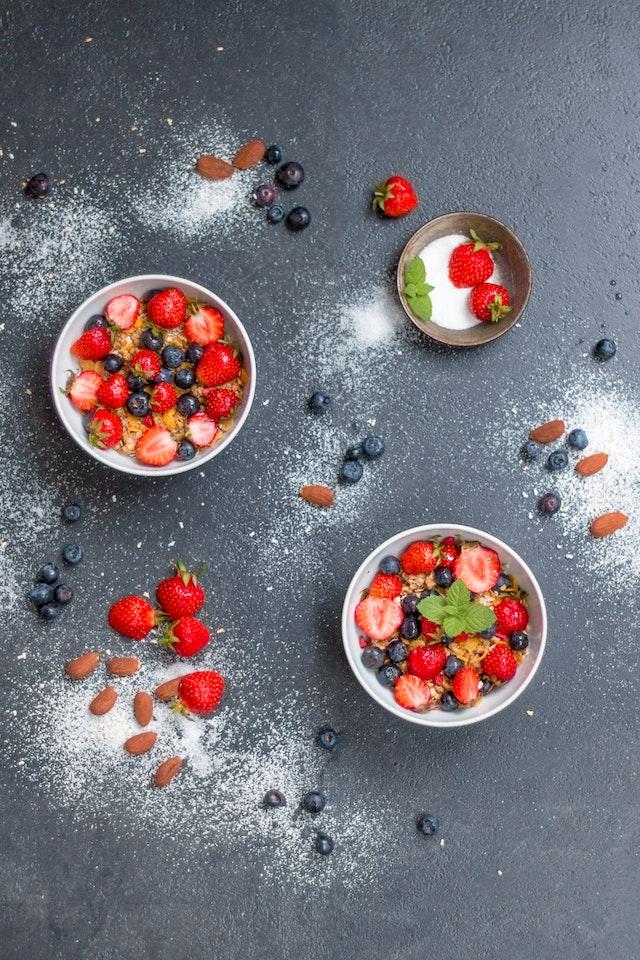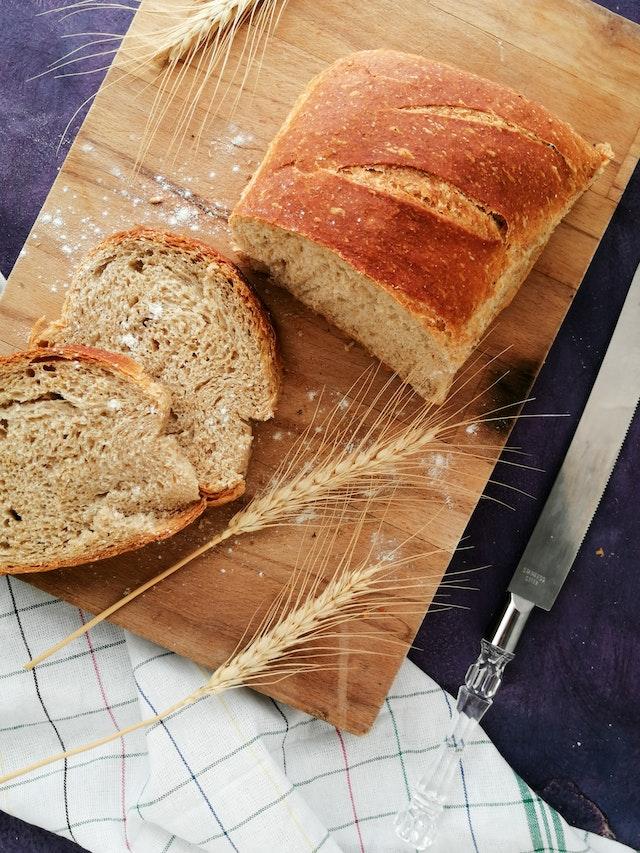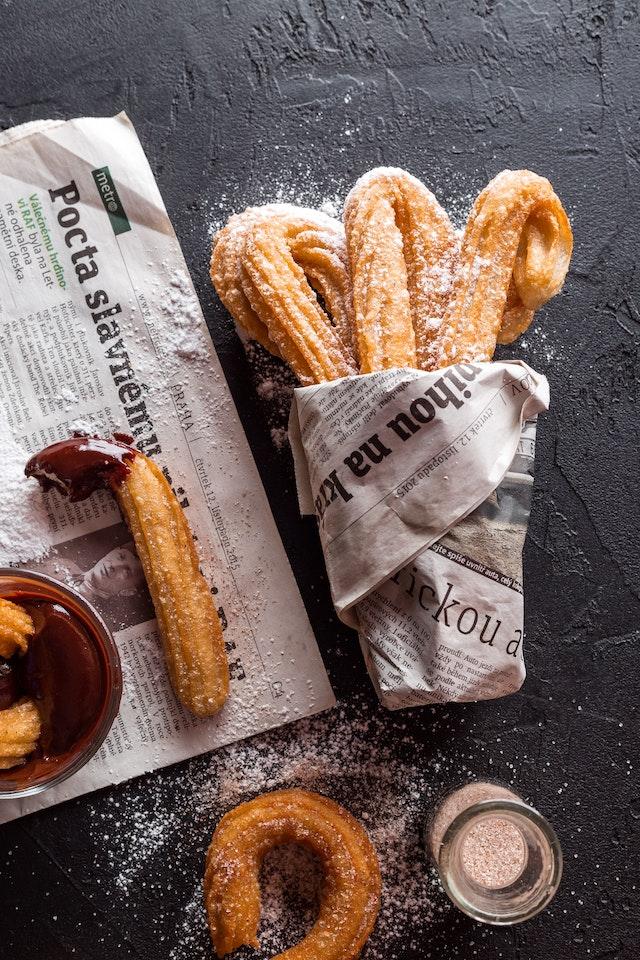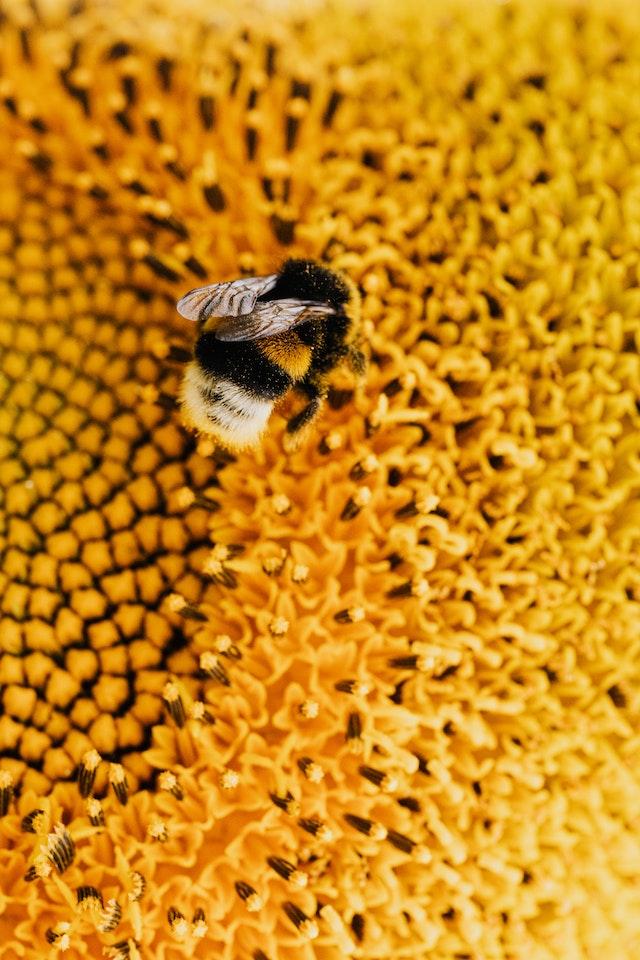Archive for December 2022
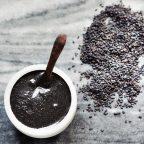
Is Black Seed Oil Good for Diabetes?
Can black seed oil be used to treat diabetes?
Natural healers promote black seed oil for its range of health advantages. It is also known as N. saliva oil and black cumin oil. The seeds of the Nigella sativa plant sometimes referred to as kalonji, are used to make the oil.
In Indian and Middle Eastern cuisine, both the oil and the seeds are employed.
Diabetes is a frequent condition that impairs the body’s capacity to make and utilize insulin. This illness leads to high blood sugar levels among other things (glucose). Medication to assist control of blood sugar is frequently part of the treatment. Diabetes comes in two basic varieties: Type 1 and Type 2.
Finding complementary and alternative therapies that can aid in the control of blood sugar levels is a current area of research. The subject of some of the studies is black seed oil. It has demonstrated several promising outcomes, such as:
• N. saliva seeds play a significant role in the treatment of diabetes, according to a 2016 review published in the British Journal of Pharmaceutical Research (enhancing insulin production, glucose tolerance, and beta cell proliferation). As a result of the review, it was determined that the seeds can be highly effective in treating diabetes problems such as nephropathy, neuropathy, and atherosclerosis.
• A 2013 study came to the conclusion that high doses of N. Sativa oil had a therapeutic impact on diabetic mice by considerably raising serum insulin levels.
• According to a 2017 study, black cumin seed oil over time decreased HbA 1 c, or the average blood glucose levels, by boosting insulin production, lowering insulin resistance, boosting cellular activity, and reducing intestinal insulin absorption.
Black seed oil components
One of the most powerful components of black seed oil’s hypoglycemic effect, according to a 2015 assessment of medical journals, maybe thymoquinone. For usage in clinical trials on diabetic patients, the evaluation recommended doing molecular and toxicological investigations to determine the most potent and secure components of the seed.
The black seed oil contains the following antioxidants as active components:
• thymoquinone
• beta-sisterol
• nigellone
The oil also contains amino acids such as:
• linoleic
• oleic
• palmitic
• stearic
Also found in black seed oil are:
• selenium
• calcium
• iron
• potassium
• carotene
• arginine
Conclusion
Studies on black seed oil as a possible therapy for diabetes have yielded encouraging findings. However, in order to completely understand its safety for persons with other health conditions (apart from diabetes) and to ascertain how black seed oil interacts with other treatments, large-scale clinical research is still required.
Consult your doctor before taking black seed oil if you’re thinking about using it to control your diabetes. They can offer advantages and disadvantages of how black seed oil will affect your existing health. They can also advise you on how frequently you should check your blood sugar when you first start.
If you decide to use black seed oil following a discussion with your doctor, make sure the brand you choose has undergone efficacy and safety testing. The Food and Drug Administration (FDA) doesn’t keep an eye on how these supplements are sold in the US.
FAQ
Can black seed oil reduce blood sugar?
According to a study, black seed oil helps diabetes patients’ blood sugar levels and insulin production. The synthesis of insulin may be enhanced and blood sugar levels may be controlled, according to research on black seed oil.
How long does it take for black seed oil to lower blood sugar?
Data from Phytotherapy Research showed that compared to a placebo, eight weeks of treatment with one gram of a Nigella sativa oil extract per day resulted in substantial reductions in fasting blood sugar levels, total and LDL cholesterol, BMI, waist circumference, and blood pressure.
Can you take black seed oil with metformin?
Some persons may have blood sugar reduction from black seed. Blood sugar is lowered with the use of diabetes treatments. You run the risk of having excessively low blood sugar if you take black seed together with diabetes treatments.
Which is Better Black seed oil or powder?
Black seed oil was even found to be more efficient than black seed powder at lowering fasting blood sugar levels, according to a study of 17 trials.
Can you take black seed oil and vitamin D together?
The standardized black seed oil and vitamin 03 work together, according to research. Black seed oil decreased inflammatory biomarkers and boosted the immune system when used in conjunction with vitamin 3.
Is it good to take black seed oil before bed?
Black cumin oil, which is high in thymoquinone, helps healthy subjects with sleep disturbances by enhancing their quality of sleep and reducing anxiety and stress.
Can I take black seed oil every day?
Black seed oil can be consumed up to three teaspoons per day, according to recommendations. There are no additional health advantages to taking more than three teaspoons per day. This amount is more than enough for many people because of how strong its flavor is! You can consume it plain or add it to your preferred recipes.
Does black seed oil increase blood flow?
By increasing the availability of nutrients and oxygen to the cells, black seed extract aids in the improvement of blood circulation.
Which is Better black seed oil or fish oil?
According to studies, the black seed oil is superior to omega-3 fish oil on its own.
Can I take black seed oil alone?
One teaspoon of raw black seed oil can be ingested each day. You might want to combine it with honey or lemon juice due to its strong flavor.
Does black seed lower blood pressure?
Black seed may benefit healthy people with their blood pressure, according to a preliminary study. The cholesterol is also reduced. In comparison to women who didn’t take the supplements, those who took black seed supplements and followed a low-calorie diet significantly reduced their cholesterol.
Can I take omega-3 with black seed oil?
Inflammation brought on by a high-fat (Western) diet may be greatly reduced by mixing omega-3 fatty acids with a standardized oil from black cumin (Nigella saliva), according to a recent study conducted at New York Medical College (NYMC) last summer and published in Antioxidants.
Does black seed oil have collagen?
Strengthening the collagen and elastin fibers in the skin is made possible by the anti-aging Vitamin A content of black cumin seed oil. To help reduce the appearance of dark spots and even out skin tone, black cumin seed also contains a wealth of fatty acids and amino acids.
xiv. Is black seed good for energy?
The benefits of the black seed for the immune system were highlighted in (lbn Sina) Avicenna’s 1025 A.O. Canon of Medicine, who employed the seed to improve physical vitality and hasten tiredness recovery.
How long can I take black seed oil?
Black seed oil is probably safe for the majority of individuals to consume when used sparingly in cooking. There is, however, no information on the long-term safety of using higher doses for medicinal purposes. In general, there haven’t been any major negative effects associated with short-term use of three months or less.
Does black seed oil make you sleepy?
The natural sleep aid black seed oil is used. A better night’s sleep can be achieved by using black seed oil, according to research, by reducing sleep disruptions. One teaspoon each of black seed oil and honey can be mixed in warm milk and taken by those who suffer from insomnia one hour before bed.
Who should not take black seed oil?
Black seed oil should not be consumed by infants, women who are pregnant, or women who are nursing. There may be interactions between specific medications, botanicals, and dietary supplements.
Please Note: Prior to beginning a supplement, always check with your health care provider or doctor.

Broccoli Sprout Extract Improves Blood Sugar
Broccoli Sprout Extract Lowers Blood Sugar
Broccoli is a member of the cruciferous plant family, and its many health advantages have long been recognized partly because of its sulfur-containing chemicals.
The fasting blood sugar levels of obese persons with type 2 diabetes significantly improved after consuming a chemical contained in broccoli sprouts and other cruciferous vegetables.
It was also discovered that the substance, known as Sulforaphane, decreased glucose production in cultured liver cells and seemed to correct aberrant gene expression in the livers of rats.
The research by Annika Axelsson and coworkers at the Lund University Diabetes Center in Sweden was published in the journal Science Translational Medicine.
Among the many positive effects of broccoli sulforaphane:
The risk of developing cancer is lowered by minimizing exposure to carcinogens and bypassing the body of these substances.
Removal of toxins from the liver (VIP: the active sulforaphane selective phase 2 detoxifying enzyme inducers without triggering the phase 1 enzyme induction, for example, c, cytochrome P450). The potential of anti-carcinogens to stimulate the production of phase 2 enzymes has been shown as a key characteristic of these substances.
- Promote a healthy inflammatory response by stimulating the production of anti-inflammatory, antioxidant enzymes.
- Enhances Glutathione, the predominant intracellular antioxidant
- It gives DNA a chance to defend and repair itself
- Maintenance of an optimal amount of the ulcer-causing H. pylori bacterium ( it is needed to a certain extent but not to the point where it causes stomach ulcers )
Type 2 Diabetes
About 90–95% of all instances of diabetes are classified as type 2, making it the most prevalent form of the disease.
A lack of proper insulin use leads to excessive blood glucose levels and the onset of this disease. Severe consequences, such as heart attack, stroke, nerve damage, and renal failure, may develop in people with type 2 diabetes if their blood glucose levels are not managed.
Although treatments like metformin may help persons with type 2 diabetes regulate their blood glucose levels, Axelsson and colleagues point out that some patients use these drugs owing to significant side effects such as kidney damage.
Therefore, more secure options are needed. Has Sulforaphane the potential to fill this void?
Liver gene expression and blood sugar were both increased by Sulforaphane. Axelsson and colleagues sought to address this topic by developing a genetic signature for type 2 diabetes based on the 50 risk factors previously identified.
Using this signature, the scientists analyzed freely available gene expression data. By doing so, they evaluated the impact of over 3,800 chemicals on the changes in gene expression in liver cells related to type 2 diabetes.
Sulforaphane, a chemical molecule found in cruciferous vegetables, including broccoli sprouts, Brussels sprouts, cabbage, and watercress, was shown to have the most impact, according to the study’s authors. Sulforaphane inhibited glucose synthesis in cultured liver cells. It was shown that when this chemical compound was given to diabetic rats, the liver’s gene expression changed for the better.
Following this, the team conducted a 12-week, randomized, controlled trial of broccoli sprout extract in 97 people who were overweight. A placebo-controlled trial means exactly what it says. Everyone in the adult population had been diagnosed with type 2 diabetes and had poor glucose control.
Fasting blood glucose levels were significantly lower in those who took the broccoli sprout extract than those who did not. Additional studies are required to establish if Sulforaphane helps people with type 2 diabetes, although the results of this one are encouraging.
They are using genetic fingerprints to examine public gene expression data, as Axelsson and colleagues have done, which may be an efficient approach to finding chemicals that might aid in treating diabetes and other disorders.
Frequently Asked Questions
What are the benefits of broccoli sprout extract?
Broccoli sprout extracts reduce glucose levels in the blood. It has been shown in vitro and animal tests that a compound in broccoli sprouts may increase the body’s sensitivity to the hormone insulin, lowering blood sugar—improving articular health.
Do broccoli sprouts help lower estrogen levels?
Sulforaphane levels in broccoli sprouts are 30–100 times higher than in mature broccoli. Sulforaphane’s three incredible effects make it a game-changer: It acts as a natural ” estrogen blocker ” by binding to estrogen receptors and preventing the growth of malignant tissue caused by “bad” estrogens, such as in the case of breast cancer.
What does Sulforaphane do?
Sulforaphane inhibits the growth of cancer cells. That’s significant because it suggests it may make tumors grow more slowly or prevent them from spreading. It’s easy to get your hands on. You don’t have to do anything to gain the health benefits of Sulforaphane found in cruciferous vegetables.
Can Sulforaphane assist in liver detoxification?
By stimulating the production of liver enzymes that break down dangerous toxins, Sulforaphane facilitates the body’s natural detoxification processes and speeds up the disposal of these toxins.
Can Sulforaphane boost testosterone levels?
Type 2 diabetes has been linked to low testosterone levels. In men, Sulforaphane has been shown to boost testosterone.
To what extent does Sulforaphane benefit the kidneys?
Sulforaphane is effective in treating kidney illness by targeting the Nrf2 pathway.
Is there any truth to the claim that eating broccoli may reduce blood sugar levels?
Broccoli is considered a low-glycemic food since it does not significantly increase blood sugar levels after consumption. The Glycemic Index of broccoli is just 15, making it a good choice for those trying to control their blood sugar.
Do sprouts help to lower blood sugar?
However, since their starch content is reduced by 10% during the sprouting process, these foods are low in carbohydrates. As a bonus, they prevent a surge in blood sugar since they contain plenty of fiber. These two factors justify including sprouts in a diet for people with diabetes.
So, how exactly does one take in Sulforaphane?
Cruciferous plants, including broccoli, kale, cabbage, and watercress, are good sources of Sulforaphane. If you want to get the most Sulforaphane out of your diet, try eating raw veggies or cooking them at moderate temperatures with a dash of mustard seeds or powder.
When will I start to feel the effects of Sulforaphane?
Sulforaphane is usually effective within 14 days of treatment.
Will my blood pressure increase with Sulforaphane?
Reduced blood pressure and eradication of cardiac dysfunctions, including cardiac hypertrophy and decreased fractional shortening, are the outcomes of Nrf2 activation produced by Sulforaphane.
Will Sulforaphane cause drowsiness?
Since Sulforaphane boosts melatonin synthesis, it might lead to better sleep. Sulforaphane reduces the inflammatory compound prostaglandin D2. Sulforaphane’s melatonin and anti-inflammatory effects could make it easier to go to sleep.
Have any adverse reactions been reported with Sulforaphane?
At high dosages, Sulforaphane caused significant drowsiness (150-300 mg/kg) and hypothermia (150-300 mg/kg). Deaths (at 200-300 mg/kg), impaired motor coordination (at 200-300 mg/kg), and a loss in skeletal and muscular strength (at 250-300 mg/kg).

Vitamins for Diabetics
Vitamins for Diabetics
People who have diabetes need to adhere to a strict diet, but it’s also important to ensure they’re getting enough of certain nutrients.
Unfortunately, it is not clear whether or not certain vitamins and minerals have any effect on diabetes.
Regardless, persons with diabetes need to pay extra attention to a few specific nutrient intakes. This piece will discuss the vitamins and minerals diabetics should take daily.
Vitamins for Diabetics: What Should They Take?
People who have diabetes need to adhere to a strict diet, but it’s also important to ensure they’re getting enough of the right vitamins and minerals.
There is little data on whether certain vitamins and minerals alter blood sugar, body fat, or any of these factors.
In any case, persons with diabetes should pay extra attention to ensure they obtain the nutrients shown to help control their condition. Vitamins are important for individuals with diabetes, and this article will explain which ones are needed and how to ensure you’re receiving enough of them regularly.
The importance of various vitamins for people with diabetes.
People with diabetes do not have problems with vitamin absorption or digestion (unless they suffer from gastroparesis, which is common in people with diabetes). Vitamins are not a cure for chronic diseases like diabetes, but they do assist in complementing the diets of those who struggle to consume enough fruits and vegetables.
You should see your doctor often to check for vitamin deficits; they may request blood tests. When you wake up, you and your care team may decide which supplements will help you achieve your goals.
Vitamins for diabetics, what are your recommendations?
Thiamin (b1)
Those with diabetes, whether type 1 or type 2, are at greater risk for thiamin deficiency due to reduced thiamin levels in their blood. One may benefit from this vitamin’s ability to lessen neuropathy discomfort.
Meat, pork, nuts, whole grains, legumes, cauliflower, oranges, eggs, potatoes, asparagus, and kale are all good places to get your thiamin fix.
Tocopherol B12
Proper brain functioning and maintaining healthy red blood cells need vitamin B12. Nerve damage in the hands and feet is a common complication of diabetes, and a lack of vitamin B12 may worsen the condition. Metformin, a common diabetic medication, has been linked in studies to vitamin B12 insufficiency when used for extended periods.
Vitamin B12 is found in fish, milk, eggs, and meat. Vegetarians and vegans who lack the dietary requirement for vitamin B12 may still acquire the nutrient by supplementing with a pill.
Mineral D3
Chronically low levels of vitamin D in persons with diabetes have been associated with an increased risk of complications and mortality, according to a report from Denmark.
As many people with diabetes also suffer from insufficient vitamin D levels, eating a diet rich in egg yolks, liver, fish, and fortified dairy products is highly recommended.
Increasing your vitamin D levels may also be accomplished by spending 10-30 minutes in the sun daily.
Magnesium
Magnesium aids digestion and the use of nutrients from the foods we consume regularly, keeps our hearts beating at a healthy pace, and helps us maintain a strong immune system.
Many persons with type 2 diabetes have insufficient levels of this vital vitamin. A lack of magnesium in the body has been related to insulin resistance. Recent research published in Diabetes Care suggests that supplementing with magnesium may reduce the chance of developing type 2 diabetes.
Magnesium is found in foods like legumes, rice, beans, nuts, green leafy vegetables, and wheat products, or it may be taken as a supplement with calcium and zinc.
Vitamin E
Supplementing with vitamin E helps the body rid itself of harmful environmental pollutants, makes insulin more effective, and increases blood oxygenation. Vitamin E supplements reduce the risk of developing type 2 diabetes by protecting cells from free radical damage and aiding persons with diabetes in maintaining healthy blood sugar levels.
Almonds, sunflower seeds, nut butter, hazelnuts, avocado, and fresh salmon are all great food choices that are rich in vitamin E.
Nutritional Supplements containing Vitamin C
Low levels of vitamin C are common among those who have diabetes. High blood sorbitol levels have been linked to diabetic problems, including retinopathy and kidney damage; however, increasing one’s Vitamin C consumption may help reduce these risks.
In addition to lowering blood sugar and improving Heba 1c levels, vitamin C may also boost insulin sensitivity.
Many foods, including oranges, bell peppers, tomatoes, guava, tomato, sweet potatoes, strawberries, and spinach, are rich in vitamin C, and the vitamin is also easily accessible in supplement form.
Consult your healthcare providers when deciding which supplements are right for you. While a blood test is the best way for your doctor to identify your specific needs, increasing your intake of certain vitamins and minerals may help you manage your blood sugar levels, reduce your HbA1c, and avoid short-term and long-term issues.
FAQ
To what vitamin do you attribute the ability to lower blood sugar levels?
Magnesium D3
Compared to just 32% before the trial, 48% of patients now had an A1C that indicated good blood sugar management (20). Here’s how it functions: The pancreatic cells responsible for producing insulin may operate more efficiently, and your body may be more sensitive to insulin if you get enough vitamin D.
Insufficient intake of which nutrient brings on diabetes?
Lack of vitamin D has been linked to an increase in diabetes risk. This review will look at how vitamin D helps pancreatic beta cells continue releasing insulin normally. The development of insulin resistance is the first step toward developing diabetes.
Can diabetes be reversed by taking certain vitamins?
Patients with diabetes whose A1C and insulin resistance were improved by vitamin D treatment, according to a meta-analysis of 19 separate trials. Vitamin D supplement users also saw a reduction in their insulin requirements.
Can people with diabetes benefit from taking vitamin B12?
Studies have consistently indicated that people with diabetes who have low vitamin B12 levels or who have been using metformin for an extended period need to take a vitamin B12 supplement.
Does B12 need metformin?
Metformin may lower vitamin B12 levels in certain people. If you use metformin, your doctor should check your levels of vitamin 812. If you’re already on metformin, you don’t need to take a vitamin B12 supplement.
In what range should people with diabetes take B12?
Regarding diabetic Mellitus, we will also consider your blood glucose levels. B-12 dosage recommendations shift with age. The daily need for most adults and adolescents is 2.4 micrograms (mcg). Age determines the daily dosage for children, which ranges from 0.4 to 1.8 mcg.
Vitamins that people with diabetes shouldn’t consume.
Negative or life-threatening reactions to supplements are possible, particularly if they mix with your regular drugs.
- Niacin with St. John’s wort
- Chromium. High blood sugar levels have been linked to a lack of chromium.
- We won using vitamin E and St. John’s wort.
- Niacin.

17 Foods That Can Fight Sugar Cravings
You are not alone if you frequently crave something sweet after meals, have a hard time saying no to dessert, or depend on sugar-laden coffee drinks for a midday energy boost.
In a study published in June 2017 in Appetite, it was discovered that 86% of participants with food cravings had thoughts about high-calorie items, particularly those that contained chocolate.
The good news is that choosing foods strong in protein and fiber might help quell unwanted sugar cravings.
Some foods that can help reduce sugar cravings include the following:
- Berries
- Avocados
- Nuts, such as pistachios
- Seeds such as sesame and chia
- Pulses, such as beans, lentils, and chickpeas
Find a complete list of possible effects along with the scientific justifications for them below. Learn more about the potential causes of your sugar cravings as well.
Side Effects of Eating Too Much Sugar
Although sugar satisfies the taste buds and the soul, frequent blood sugar rises and crashes that follow binges can cause a variety of negative side effects, including weariness, irritation, and worrisome thoughts, among others, according to Sanford Health.
It can be especially harmful to your health to consume added sugar, which Americans tend to consume in excess.
In accordance with the 2015–2020 U.S. Dietary Guidelines for Americans, you should keep your daily calorie intake of added sugar to no more than 10% of your total calorie intake. If you consume 2,000 calories per day, this equates to 200 calories or 12 teaspoons. For illustration, around 9 tsp of sugar is included in one can of Coke.
Which Factors Are Causing You to Crave Sugar?
Numerous factors may be at play when sugar cravings appear to come out of nowhere. A few of the possible causes are listed below:
Dehydration
Hunger or a desire for food can frequently be confused with thirst. In fact, prior studies revealed that 62 percent of the time, people reacted “inappropriately” to hunger and thirst cues. For instance, people consume food despite being thirsty rather than hungry.
Poor Diet Quality
Sugar cravings may also be influenced by the caliber of your diet. White, refined carbs, such as those found in processed meals, can boost hunger and sugar cravings, as does consume a higher ratio of carbohydrates to protein and good fats.
Recent research has shown that gut dysbiosis, or an imbalance of the bacteria in the gut, or an overgrowth of yeast, for instance, might cause cravings for sweets.
Hormonal Changes
Hormones like estrogen, progesterone, and estradiol, as well as other factors, can contribute to sugar cravings in women (or oestradiol). Estradiol may be linked to an increase in appetite for food, according to research.
In a study published in April 2016 in The FASEB Journal, it was shown that women who had greater levels of estradiol during the luteal phase of their menstrual cycle, or the period following ovulation, consumed more carbohydrate-rich diets and had more sugar cravings.
Stress
Another factor that contributes to sugar cravings is stress. When indulged, it had a considerable impact on body mass index (BMI).
Consuming sugar can provide the body with a boost of dopamine, a neurotransmitter known as “the happy hormone,” which is released when levels of cortisol, the so-called stress hormone, rise.
Nutrient Deficiencies
Additionally, desires for sugar may result from mineral deficiencies such as those in zinc, chromium, iron, calcium, and magnesium.
It is important to pay attention to the magnesium shortage in particular. Up to 50% of adults may have a magnesium shortage, which other, earlier studies in senior people ties to an increased risk of insomnia, according to a study published in March 2018 in the Journal of Osteopathic Medicine.
Foods That Can Help Prevent Cravings for Sugar
Keep your focus on your health objectives and resist the urge to eat sugar. Your blood sugar will be stabilized by eating the meals on this list, and you’ll have fewer desires for sweets.
Berries
The finest things to eat to satisfy sugar cravings include blueberries, strawberries, blackberries, and raspberries. These low-glycemic fruits offer a lot of sweetness without raising blood sugar levels because of their low glycemic index.
Berries are a rich source of fiber and have a high-water content, both of which contribute to their ability to increase insulin sensitivity, balance blood sugar levels, and keep you feeling fuller for longer. According to the United States Department of Agriculture, a cup of raw raspberries has 8 grams (g) of fiber (USDA). Because of this, they serve as a fantastic supply of nutrients.
Avocado
Avocado is one of the finest foods to stave off sugar cravings because it has about 8 g of fiber every 4 12 cups, along with beneficial monounsaturated and polyunsaturated fats, according to the USDA.
To salads, smoothies, and Mexican food, add avocado. A creamy, delectable pudding without the additional sweets seen in store-bought varieties can be made by combining avocado with cacao and a small amount of maple syrup.
Pistachios
All kinds of nuts are excellent options for reducing sugar cravings because they provide protein, fiber, and healthy fats, but pistachios stand out since they are particularly high in all three nutrients.
Sesame Seeds
Healthy monounsaturated and polyunsaturated fats, as well as fiber, can be found in seeds like sesame seeds, which can help you resist the need to eat sugar. A tablespoon (tbsp) of whole sesame seeds that have been roasted or toasted provides 1.1 g of fiber, according to the USDA.
Chia Seeds
Even though chia seeds are tiny, they are a nutritional powerhouse for reducing sugar cravings thanks to their unique nutritional composition. For starters, the USDA estimates that they contain more than 4 g of protein and over 10 g of fiber per ounce. According to Harvard University, they also plant that contain the highest concentration of omega-3 fatty acids.
Additionally, eating chia seeds with yogurt boosted fullness and decreased cravings for sweet foods, according to a small study that was published in Nutrition Research and Practice in October 2017.
Greek Yogurt
Sugar cravings can be lessened by consuming enough protein at each meal.
Greek yogurt, which has 9 g of protein in a half-cup and is a great snack to resist sugar cravings, is reported to have this nutritional value by the USDA.
Quinoa
Fun fact: Quinoa, a seed that is naturally gluten-free and high in antioxidants, is frequently categorized as a whole grain. The USDA claims that quinoa is a fantastic go-to carbohydrate for lowering blood sugar since it has more than 4 g of protein and more than 2 g of fiber in a cooked 1/2 cup serving.
Serve quinoa as a side dish, incorporate it into salads and soups, or use it as part of your morning cereal, along with some fruit, nuts, or seeds and a dash of cinnamon.
Eggs
According to the USDA, one large egg offers more than 6 g of protein and is a good source of 13 important vitamins and minerals. Eggs are also a good source of protein, which helps battle sugar.
Hummus
The finest diabetic snacks available are those that include hummus. Hummus has a very low glycemic index and is a great source of protein, heart-healthy monounsaturated fats, vitamins, and minerals. It is also loaded with complex carbohydrates, which are good for people with diabetes.
The USDA estimates that half a cup of hummus includes about 10 grams of protein, 7 grams of fiber (an excellent source), and good monounsaturated and polyunsaturated fats.
Coconut Oil
Like other forms of fats, coconut oil is absorbed gradually, which can aid in boosting feelings of satiety, reducing the rate at which other foods are turned into sugar in the blood, and regulating blood sugar, all of which help fight sugar cravings.
Olives
You may feel fuller for longer and have fewer sugar cravings thanks to the beneficial monounsaturated and polyunsaturated fats contained in olives and olive oil.
Nonstarchy Vegetables
Nonstarchy, low-glycemic veggies such as broccoli, cauliflower, zucchini, spaghetti squash, Brussels sprouts, and cabbage offer satisfying fiber to fend off hunger and are absorbed slowly to prevent blood sugar rises and reduce sugar cravings.
Cheese
A sweet tooth can be suppressed by the protein and fat found in cheese. However, you should also be aware that cheese has high levels of calories, saturated fat, and sodium.
Spirulina
Spirulina is a type of blue-green algae that has more than 4 grams of protein per tablespoon. It is also a strong source of vitamins and minerals that can help with nutritional deficits and sugar cravings.
Sweet Potatoes
Vitamins and minerals can be found in abundance in sweet potatoes. According to the USDA, one medium-sized sweet potato that has been cooked and the skin still on has almost 4 g of fiber, making it a healthy source. By reducing insulin spikes, fiber can reduce appetite.
Eat the skin, which is full of fiber and nutrients like vitamins and nutrients, whether you roast, bake, or create sweet potato fries in the air fryer.
Meat, Poultry, and Fish
You can fill your protein needs by eating protein that comes from animals.
Choose organic, pasture-raised, grass-fed chicken and beef, wild-caught or cold-water fish, and these sources of high-quality fat and protein.
Dark Chocolate
A single ounce of dark chocolate, which contains polyphenols and antioxidants that can help control sugar cravings, is a good choice if you are craving chocolate.
Although dark chocolate contains less added sugar than milk chocolate, it can still help you satisfy your sweet craving and offer you an energy boost while also giving your body a dopamine and serotonin boost without causing blood sugar to surge.
Additionally, according to the USDA, dark chocolate can help correct a magnesium deficit that may be the cause of sugar cravings because it is a good provider of magnesium.
Stevia-sweetened products are widely accessible in grocery stores for diabetics.
FAQ
What deficiency causes sugar cravings?
Craving sugar may result from mineral deficiencies such as those in zinc, chromium, iron, calcium, and magnesium. It is important to pay attention to the magnesium shortage in particular.
What does sugar craving indicate?
A blood sugar imbalance is a common cause of cravings for sugar. When you consume sugar, your blood sugar rises, and your body releases insulin to bring it down to a healthy level. Your body seeks items that will raise your blood sugar and give you more energy if the insulin lowers it a little too much, as is frequently the case.
How can I stop my body craving sugar?
• Have a glass of water. Dehydration, according to some, can trigger cravings.
• Eat some fruit. Some people may find that eating a slice of fruit helps them overcome their sugar cravings.
• Avoid using artificial sweeteners.
• Increase your protein intake.
• Obtain a good night’s sleep.
• Avoid being overly stressed.
• Avoid certain triggers.
Why do pre-diabetics crave sugar?
When their blood sugar levels fall dangerously low, people with diabetes may crave sweets; “treating” the low with sugar helps to raise blood sugar levels to a safe level.
What vitamin helps with sugar cravings?
Through the vital assistance they offer to the neurological system and metabolism, B vitamins greatly reduce sugar cravings.
Why do I have no self-control with sweets?
It is interesting to note that the Yale study discovered those who are susceptible to food or alcohol addiction also have low levels of the brain chemicals that assist restraint and inhibition. Simply put, these individuals have less self-control over their consumption.
Do sugar cravings ever go away?
A few days to a couple of weeks are how long some people’s symptoms endure. Your symptoms and sugar cravings are probably to become less acute as your body adjusts to a reduced added sugar diet over time and as you consume added sugar less frequently.
Magnesium supplements assist control blood sugar levels and lessen the desire for sweets. The likelihood of having low magnesium levels is higher if you have Type 2 diabetes or pre-diabetes.
Can hormone imbalance cause sugar cravings?
A person’s desire for sugary foods and carb-heavy snacks may occasionally be fueled by hormone-driven disorders like menopause, andropause, and menstrual cycles.
Can probiotics help with sugar cravings?
One of the most effective strategies to lessen sugar cravings, in the opinion of some experts, is to include fermented foods and probiotics in the diet. Probiotics, fermented foods, and fermented beverages can all assist in reestablishing the proper balance of healthy gut bacteria.
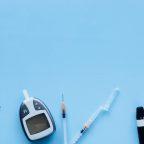
How Many Grams of Sugar Spikes Insulin?
Blood sugar spikes happen when your blood sugar increases after eating and suddenly drops.
They may result in short-term hunger and drowsiness. Type 2 diabetes can develop over time if your body is unable to adequately control blood sugar levels.
Your blood sugar will increase by roughly 5 mg/di after ingesting 1 gram of pure glucose, while this amount may change according to the person’s weight, diabetes condition, and present blood sugar level.
A growing number of people are developing diabetes. In actuality, 25% of the 29 million Americans who have diabetes are completely unaware of their condition.
Your blood arteries may stiffen and narrow as a result of blood sugar surges, which increases your risk of having a heart attack or stroke.
Go low-carb
Blood sugar levels are raised by carbohydrate-containing foods.
Carbs are converted into simple sugars when you ingest them. Following that, these sugars get into circulation.
When your blood sugar levels increase, your pancreas secretes the hormone insulin, which instructs your cells to take up sugar from the blood. You have a dip in blood sugar as a result of this.
A low-carb diet has been linked to lower blood sugar levels, according to numerous research.
Besides helping with weight loss, which can lower blood sugar surges, low-carb diets also have this additional advantage. You can cut back on your carbohydrate intake in a variety of ways, including by keeping track of them.
Eat fewer refined carbs
Sugars or refined grains are examples of refined carbohydrates, also referred to as processed carbohydrates.
Table sugar, white bread, white rice, soda, candy, breakfast cereals, and desserts are a few prominent sources of refined carbohydrates.
Nearly all of the nutrients, vitamins, minerals, and fiber have been removed from refined carbohydrates.
Because they are metabolized by the body so easily and fast, refined carbohydrates are considered to have a high glycemic index. Blood sugar levels increase as a result of this.
High-glycemic-index foods may cause a surge in blood sugar followed by a subsequent dip in blood sugar, which can increase appetite, cause overeating, and result in weight gain.
Different carbohydrates have different glycemic indexes. It depends on a lot of factors, including ripeness, what else you eat, and how the carbohydrates are prepared or cooked.
The majority of fruits, non-starchy vegetables, and legumes, as well as whole-grain foods, have a lower glycemic index than other foods.
Reduce your sugar intake
The daily added sugar intake for an American is 22 teaspoons or 88 grams. Around 350 calories are contained in that.
While some of it is added as table sugar, the majority of it originates from prepared and processed foods like candy, cookies, and sodas.
Sugars like sucrose and high-fructose corn syrup that have been added to foods are not necessary for your nutrition. As a result, they are only worthless calories.
These simple sugars are very quickly broken down by our body, which leads to a very immediate rise in blood sugar. Replace sugar with sugar replacements as a compromise rather than completely giving it up.
Keep a healthy weight
Currently, it is estimated that two out of every three persons in the US are overweight or obese.
Obesity can make it more challenging for your body to use insulin and regulate blood sugar levels. This may result in blood sugar increases and an increased risk of type 2 diabetes.
There is a ton of evidence that connects obesity to insulin resistance and the onset of type 2 diabetes, while the exact mechanisms by which it occurs are still unclear.
On the other side, it has been demonstrated that losing weight enhances blood sugar regulation.
Exercise more
By enhancing your cells’ sensitivity to the hormone insulin, exercise helps prevent blood sugar increases.
Blood sugar levels are lowered by exercise because it causes muscle cells to absorb sugar from the circulation.
Exercise of any intensity has been shown to lessen blood sugar rise, including vigorous exercise.
Blood sugar regulation may differ depending on whether you exercise on an empty or full stomach.
As a double whammy to counteract blood sugar rises, increasing activity also offers the added benefit of aiding in weight loss.
Eat more fiber
The components of plant foods that your body cannot digest makeup fiber. Soluble fiber and insoluble fiber are the two main categories. Particularly soluble fiber can aid in reducing blood sugar peaks.
It disintegrates in water to create a gel-like material that aids in reducing the rate at which carbohydrates are absorbed in the gut. Instead of a spike, this causes the blood sugar to rise and fall gradually.
Additionally, fiber can help you feel full, which can help you eat less and have less of an appetite. Good sources of soluble fiber include:
• Nuts
• Legumes
• Some fruits, such as strawberries, raspberries, and blueberries
• Many vegetables
Drink more water
Lack of water intake might cause blood sugar to increase.
Your body creates the hormone vasopressin when you are dehydrated. As a result, your kidneys are encouraged to retain fluid, and the body is prevented from excreting extra sugar in your urine.
More sugar is also released into the blood by your liver as a result of it.
It is debatable how much water is ideal to consume. Basically, it depends on the person.
You should always drink as soon as you feel thirsty, and you should drink more water in hot weather and while exercising.
Drink water instead of sugary drinks or sodas because they will cause blood sugar to increase.
Introduce some vinegar into your diet
Many health advantages have been discovered for vinegar, especially apple cider vinegar.
Weight loss, lowered cholesterol, antimicrobial effects, and blood sugar regulation have all been related to it.
The glycemic index of a food can be lowered by adding vinegar, which can aid in preventing blood sugar increases. Pickled meals considerably lower the meal’s glycemic index, according to a Japanese study, which found this to be true.
Get enough chromium and magnesium
Chromium and magnesium have both been shown in studies to be useful in reducing blood sugar peaks.
• Chromium
You require trace levels of the mineral chromium.
It is believed to improve the way that insulin works. Encouraging the cells to take up sugar from the blood may help prevent blood sugar increases.
Here are the suggested dietary allowances for chromium. Broccoli, egg yolks, shrimp, tomatoes, and Brazil nuts are examples of nutrient-dense foods.
• Magnesium
The element magnesium has also been connected to the regulation of blood sugar.
On this page, you can find the suggested daily intakes for magnesium. Almonds, avocados, cashews, peanuts, and spinach are all rich food sources.
Add some spice to your life
For countless years, alternative medicine practitioners have utilized fenugreek and cinnamon. The management of blood sugar has been connected to both of them.
• Cinnamon
There is conflicting scientific data supporting the use of cinnamon in blood sugar management.
Cinnamon has been demonstrated to improve insulin sensitivity and lessen blood sugar increases after a carb-based diet in healthy individuals.
There are two types of cinnamon:
- Cassia: Can be produced by a number of different Cinnamomum tree species. This is the variety that is most frequently found in supermarkets.
- Ceylon: Obtained exclusively from a tree called Cinnamomum Verum. Although it costs more, it might have more antioxidants.
Coumarin, a compound found in cassia cinnamon, has the potential to be dangerous.
The acceptable daily intake of coumarin has been defined by the European Food Safety Authority (EFSA) at 0.045 mg per pound of body weight (0.1 mg/kg). For a 165-pound (75 kg) person, this is equivalent to around half a teaspoon (1 gram) of Cassia cinnamon.
• Fenugreek
The seeds of fenugreek are rich in soluble fiber, which is one of its qualities.
As a result, the digestion and absorption of carbohydrates are slowed, assisting in preventing blood sugar increases. However, it seems that more than simply the seeds may help to lower blood sugar levels.
Blood sugar peaks may be lessened with fenugreek. Although it can be added to food, some individuals choose to take it as a supplement because of its strong flavor.
• Berberine
There are numerous plants from which the chemical berberine can be derived.
For thousands of years, it has been utilized in traditional Chinese medicine. Its applications include lowering cholesterol, promoting weight loss, and managing blood sugar.
Berberine improves insulin sensitivity by decreasing the amount of sugar the liver produces. Even some type 2 diabetes medications have been proven to be as ineffective as it is.
Despite the fact that berberine seems to be rather safe, if you have any health issues or are currently on any medications, talk to your doctor before using it.
Consider these lifestyle factors
You should also take into account these lifestyle factors that can alter blood sugar if you truly want to lessen your blood sugar spikes.
• Stress
Stress can have a detrimental impact on your health in a number of ways, including by creating headaches, elevated blood pressure, and anxiety.
Additionally, it has been demonstrated to have an impact on blood sugar. Your body releases specific hormones as your stress level rises. The result is a release of sugar-based stored energy for the fight-or-flight response into your bloodstream.
Your blood sugar has been shown to benefit from actively treating stress. Yoga poses have been shown in a study of nursing students to lower stress levels, and blood sugar rises after meals.
• Sleep
Poor blood sugar regulation has been linked to both insufficient and excessive sleep. Your blood sugar levels might be impacted by even one or two bad nights.
Both amount and quality matter when it comes to sleeping. In terms of managing blood sugar, a study indicated that the deepest stage of sleep (NREM) was crucial.
• Alcohol
A lot of added sugar is frequently found in alcoholic beverages. This is especially true for cocktails and mixed drinks, which can have up to 30 grams of sugar per serving.
Similar to how adding sugar in meals causes blood sugar rises, so does the sugar in alcoholic beverages. The majority of alcoholic beverages are likewise very, very low in nutrients. They are, in fact, empty calories, similar to added sugar.
The effectiveness of insulin can also be lowered over time by heavy drinking, which results in high blood sugar and eventually leads to type 2 diabetes.
The bottom line
You may prevent blood sugar rises by making simple dietary changes like following a low-carb, high-fiber diet and staying away from added sugars and processed grains.
Beyond just assisting in blood sugar regulation, frequent exercise, maintaining a healthy weight, and drinking lots of water can all be beneficial to your health.
However, before making any dietary changes, talk to your doctor if you have any medical issues or are taking any medications.
For the majority of people, adopting these straightforward dietary and lifestyle modifications is a fantastic strategy to reduce your chance of developing type 2 diabetes or insulin resistance.
FAQ
How much sugar can cause insulin spikes?
When your blood sugar levels rise above 250 mg/dl, you often start to experience the symptoms of hyperglycemia. The longer it goes untreated, the worse the symptoms may get. Frequent urine is one sign of a blood sugar increase.
How much does it take to spike insulin?
Thirty-five grams of casein, however, are sufficient, according to the study, to cause an insulin surge the morning following an overnight fast. Furthermore, this protein-induced insulin surge happens extremely soon after protein consumption and typically peaks 15 minutes after ingestion.
How many g of sugar is OK per day?
The American Heart Association (AHA) advises a tougher added-sugar restriction of no more than 150 calories (or approximately 9 teaspoons or 36 grams of sugar) per day for most men and no more than 100 calories (or about 6 teaspoons or 24 grams) per day for the majority of adult women.
How much sugar spike is normal?
The American Diabetes Association (ADA) states that a blood sugar level under 180 mg/dl, 1 to 2 hours after a meal, is a general target. Experts disagree on what the exact figure should be. Discuss your goals with your doctor, and don’t change your medication without first consulting them.
How high is too high for a blood sugar spike?
When your blood glucose level is 200 mg/dl or greater, it occurs. If you forget to take your diabetic medication, consume too much, or do not exercise enough, hyperglycemia may result. High blood sugar can occasionally be caused by medications you take for other health issues.

Bee Pollen for Diabetes
With its anti-inflammatory and antibacterial characteristics, bee pollen is frequently touted as a useful dietary supplement. In addition, there are numerous other health benefits that are claimed for it, including that it lowers allergies, increases athletic performance, balances hormones, and prevents cancer.
Because it contains nutrients that can benefit people with diabetes and associated complications, bee pollen is referred to as nature’s wonder food.
Diabetes develops when the amount of insulin produced is insufficient, causing the bloodstream to hold onto the glucose that should have been used by the cells as an energy source. Complications related to diabetes might also have an impact on the body’s other organs.
Fortunately, bee pollen can assist those who are managing their diabetes and associated complications by:
Strengthening the immune system
- The body is protected from stress brought on by diabetes by the high antioxidant content of bee pollen. Blood sugar levels that are too high can harm key organs by putting them under stress. Bee pollen may be able to reduce those damages and enhance its performance.
Increasing energy
- Because they do not consume enough calories to burn as energy, diabetics experience fatigue frequently. Athletes use bee pollen, which is rich in protein and amino acids, to boost their energy reserves.
Hasten wound healing
- Diabetes patients are aware of the risk of infection as a complication of their condition. A surplus of sugar in their blood prevents their open wounds from healing quickly. Infection and even necrosis are risk factors that are increased by open wounds. Vitamins A, C, and E, which can speed up wound healing and stop infection, are included in bee pollen.
Manage weight
- Obesity and diabetes are frequently related. Due to the components in bee pollen that boost metabolism and aid in fat burning, it can aid in the management of diabetes and obesity.
Increase the overall health and well-being
- In addition to these nutrients, bee pollen is also rich in minerals, enzymes, coenzymes, the B complex, and a host of other substances. Diabetes might make a person more susceptible to developing other ailments. Through the provision of the nutrients required by the body to fight off viruses and germs, bee pollen can improve general health and wellness.
If a person can combine their diabetes with a healthy and active lifestyle, they may be able to control their condition. If used in conjunction with a healthy diet and exercise, bee pollen would be very beneficial. Bee pollen can be consumed straight or as a supplement for greater convenience.
If they are created of good quality, bee pollen supplements are strong and beneficial for diabetes. Some supplements are inexpensive because they contain fillers and preservatives that are harmful to the body.
One of the world’s ideal foods is the pollen that has accumulated in beehives. Regarding nutrition, it possesses every single essential component. In fact, if you were abandoned on a remote island with just bee pollen for food, you might be able to survive on it alone—provided, of course, that you also had access to clean water.
Pollen is more protein-rich than meat pound for pound. Furthermore, it’s stuffed full of vitamins and nutrients that were previously known to be beneficial for diabetes. The B complex vitamins, such as Thiamine, are all present in pollen as an illustration (Vitamin B1). Already, we can see the main benefits of pollen emerge since Thiamine is frequently employed in the treatment of diabetes.
Nicotinic acid, like vitamin B1, is widely used to treat diabetes, and pollen is a very good source of this substance. The fact that it gives you a ton of important nutrients while being extremely low in calories is the benefit that stands out the most. Less than 36 calories are included in an ounce of pollen. Bee pollen will also be a very powerful assist in weight loss because of the low-calorie count and the enormous amount of minerals it offers.
In addition to improving metabolic rate, it also aids in reducing food cravings. Sportsmen have used it for a very long time since it also increases energy levels.
Given that diabetes is frequently brought on by being overweight and/or leading a sedentary lifestyle, appetite suppression, an elevated metabolism, and increased energy are the ideal trifecta for diabetes sufferers.
In conclusion, bee pollen is undoubtedly beneficial for treating diabetes, but it’s important to remember to only buy pollen from reliable sources and to ask the two questions I’ve listed above before placing your order.
FAQ
Is bee pollen high in sugar?
Consequently, bee-collected pollen has a high carbohydrate content, with up to 40% of its weight being made up of sugars.
Does bee pollen help with sugar cravings?
Bee pollen is also a rich source of fat-burning amino acids, which might help you resist the urge for sugar throughout the day. It promotes good digestion by using enzymes to target the foods that are sitting in your stomach and break them down more quickly.
Does bee pollen reduce cholesterol?
Bees gather pollen from flowers to utilize as a source of food, and this pollen is known as bee pollen. It has been used to reduce cholesterol and weight because of its high protein content.
When is the best time to take bee pollen?
Anytime during the day or night is safe to take it. Just be aware that some people have a sudden burst of energy after taking the chemical, so it would be advisable to take it earlier in the day rather than later at night. It can also be added to a variety of foods, including cereal, applesauce, yogurt, smoothies, and more.
How quickly does bee pollen work?
Some claim that taking it would cure your allergies within a month, while others assert that if you want to experience any relief, you must begin taking it six weeks prior to allergy season.
How much bee pollen should you take daily?
Start with 1/4 teaspoon and work your way up to 2 teaspoons every day, according to proponents of alternative medicine, while keeping an eye out for any adverse responses that may cause itching, swelling, shortness of breath, dizziness, or other extreme whole-body reactions.
Can I take bee pollen on an empty stomach?
The worries I have heard regarding taking it with vitamins or pharmaceuticals are generally baseless because it is not a drug. Bee pollen is actually available for consumption at any time of day or night.
Is bee pollen a Superfood?
Bee pollen is a superfood since it is a tonic ingredient with high bioactivity. This is due to the fact that it includes every nutrient required to support human existence and comprises more than 96 distinct nutrients in total.
Does bee pollen detox your body?
Pollen can help maintain the youthful and radiant appearance of your skin because it is an excellent source of several vitamins and minerals. It increases the flow of blood to all skin cells, aids in body detoxification, minimizes the appearance of wrinkles, and hastens the healing process.
Who should not take bee pollen?
Check with your doctor before beginning any supplements because they may possibly interact with some medications. Additionally, due to safety concerns, it would be advisable to stay away if you have allergies, are pregnant, nursing, or are less than 1 year old.
